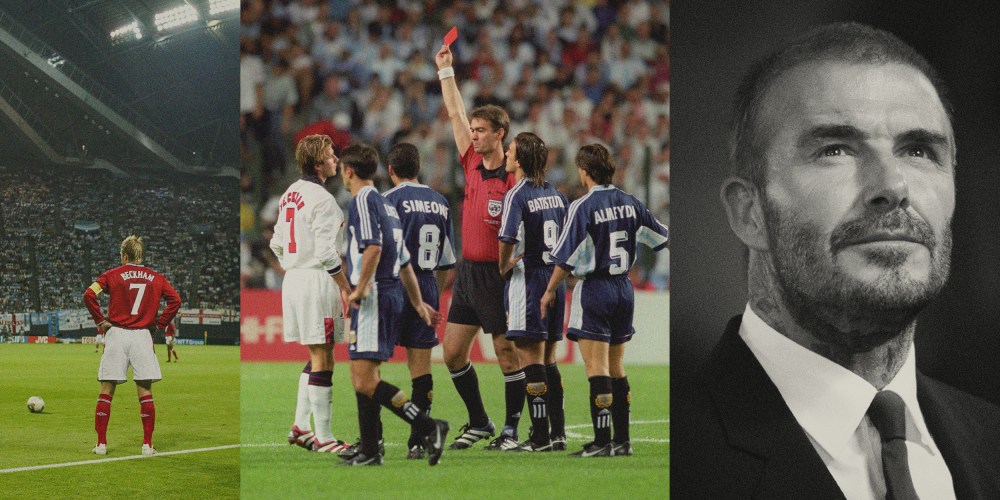The first two episodes of “Beckham,” a slick and compelling four-part docuseries about the career of soccer’s legendary David Beckham, largely revolve around the red card he received in 1998 during the round-of-16 World Cup match between England and Argentina. Beckham was removed from play for flicking Argentinian player Diego Simeone with his foot in response to Simeone fouling Beckham and pressing his fist into Beckham’s head as he lay on the pitch. By losing the match, England was knocked out of the World Cup — a humiliation Beckham was blamed for across Britain. What ensued was the nadir of Beckham’s career.
England was knocked out of the World Cup — a humiliation Beckham was blamed for across Britain
The series, directed by Fisher Stevens and released Wednesday, explores, in part, how the football star became a vehicle for national pride and outrage. Viewers see how the inextricable ideologies of hegemonic masculinity and nationalism, both of which are predicated on domination, play out in the United Kingdom’s relationship with Beckham over his decades-long career.
After the 1998 red card and England’s loss and elimination, Beckham became a national pariah. He received abuse everywhere he went and death threats, some in the form of bullets sent via mail; people in the street spat on him; newspaper headlines were vicious; he was booed during matches; angry fans in stadiums chanted sexually violent messages about his wife, Victoria Beckham; a pub even hung an effigy of Beckham. “He let the nation down — it was an absolute disgrace,” a commentator exclaims at the end of the first episode.
“They want blood” is how Gary Neville, one of Beckham’s best friends and longtime former Manchester United teammate, described the aftermath.
It is of particular relevance that Beckham was blamed for England’s losing to Argentina. The previous decade, the United Kingdom and Argentina came head-to-head during the Falklands War, as the two nations battled for control of the Falkland Islands and its territorial dependencies. Despite the fact that the U.K. won the war, the country continued on its trajectory of diminishing global influence in the intervening years, making the World Cup match defeat feel all the more humiliating to a nation with a growing inferiority complex.
Indeed, the vitriol and backlash directed at Beckham provided a fascinating insight into the relationship between sport, nationalism and masculinity. Historically, sport has been an integral component to political projects the world over.
The backlash provided a fascinating insight into the relationship between sport, nationalism and masculinity.
Muscular Christianity, which became an important doctrine during the Victorian era in Britain, espoused a version of patriotic masculinity that privileged discipline, domination and physical strength — values promoted and inculcated through sport. “Games playing as defined by English rules and standards set the British and their subjects apart from effeminate continental Europeans, subjugated Africans, and effete Asians,” Patrick McDevitt writes in his book, “May the Best Man Win: Sport, Masculinity, and Nationalism in Great Britain and the Empire, 1880-1935.”
He goes on to note that, as Britain’s dominion declined, “the overwhelming success of colonial teams was taken to be a sign of British physical and moral degeneration at a time when Social Darwinism clearly foretold the fate of those who were not the ‘fittest.’” The national hatred channeled at Beckham became an outlet for England’s anxieties about the decline of its empire, its place in the world, and, relatedly, collective anxieties about masculinity. Hegemonic masculinity and nationalism collapse under any condition other than domination.












